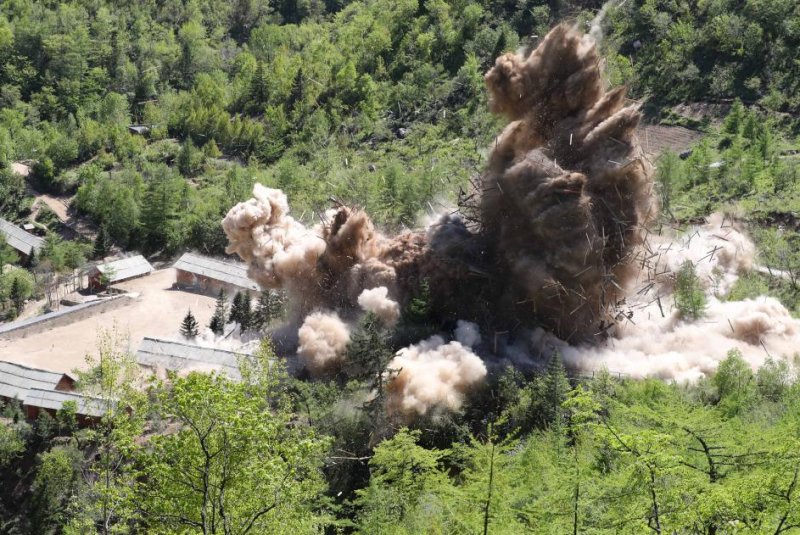Earth is displaced during an explosion on the first day of dismantling at North Korea's Punggye-ri nuclear test site in Punggye-ri, North Korea, on May 24, 2018. Photo by News 1/EPA-EFE
SEOUL, Nov. 28 (UPI) -- A North Korean nuclear test last year caused ground collapsing and several small earthquakes in the areas near the nuclear test site, according to a seismic data analysis by the U.S. and Chinese scientists.
The study, published in Seismological Research Letters, an international journal of research in earthquake, found that the underground nuclear test conducted at Punggye-ri nuclear test site in North Korea was the largest among previous tests.
The test, conducted in September 2017, caused an earthquake about eight minutes after the explosion and a major ground collapsing. It also found that the test caused severe damages over an area of about nine square kilometers.
North Korea had conducted six known nuclear tests from 2006 to 2017.
In May, North Korea dismantled the Punggye-ri nuclear test site as a step to denuclearize its nuclear weapons in a ceremony attended by international journalists.
"Identifying the event as a collapse is another indicator that the 3 September 2017 event was a nuclear test that generated a large vaporization cavity that collapsed eight and half minutes later," said William Walter of Lawrence Livermore National Laboratory in the U.S. in the report.
The scientists used a method with which they can distinguish nuclear test explosions from natural earthquakes.
The analysis confirms a ground collapse caused by a nuclear test by North Korea for the first time, according to Japanese media Yomiuri Shimbun.
Based on the data analysis, the Punggyeri-nuclear test site may have been already unusable for future nuclear tests, Japanese media Yomiuri Shimbun said.















